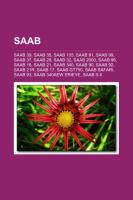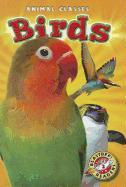Saab
BücherAngebote / Angebote:
Quelle: Wikipedia. Seiten: 108. Nicht dargestellt. Kapitel: Saab 39, Saab 35, Saab 105, Saab 91, Saab 99, Saab 37, Saab 29, Saab 32, Saab 2000, Saab 96, Saab 18, Saab 21, Saab 340, Saab 90, Saab 92, Saab 21r, Saab 17, Saab Gt750, Saab Safari, Saab 93, Saab 340aew Erieye, Saab 9-X. Auszug: The Saab 340 is a discontinued Swedish two-engine turboprop aircraft designed and initially produced by a partnership between Saab and Fairchild Aircraft in a 65:35 ratio. Under the initial plan Saab built the all aluminium fuselage and vertical stabilizer, and also performed final assembly in Linköping, Sweden, while Fairchild was responsible for the wings, empennage, and wing-mounted nacelles for the two turboprop engines. After Fairchild ceased this work, production of these parts was shifted to Sweden. The aircraft first flew on 25 January, 1983, but due to declining sales, production of the Saab 340 ended in 1998. Originally designated as the SF340, the aircraft first flew on 25 January 1983. When Fairchild exited the aircraft manufacturing business in 1985 after about 40 units, Saab dropped the name Fairchild from the project and continued aircraft production under the designation Saab 340A and 159 A models were built. An improved version, the second generation 340B, introduced more powerful engines and wider horizontal stabilizers in 1989 and the later 340Bs also had an active noise control system. Two hundred aircraft were built. The final third generation version, the 340B Plus, was delivered for service in 1994 and incorporated improvements that were being introduced at the same time in the Saab 2000. One hundred aircraft were built adding up to a total of 300 B models. The production run of Saab 340s typically seated between 30 and 36 passengers, with 34 seats being the most common configuration. The last two 340s built were constructed as older configuration 36-seat aircraft for Japan Air Commuter. One of the improvements introduced in the 340B Plus was the installation of an active noise and vibration control system in the cabin, reducing noise and vibration levels by about 10 dB during cruising flight. This optional feature carried over from the 340B was standard in the 340B plus along with extended wingtips which was an option on the 340B+. Another ch
Folgt in ca. 5 Arbeitstagen




